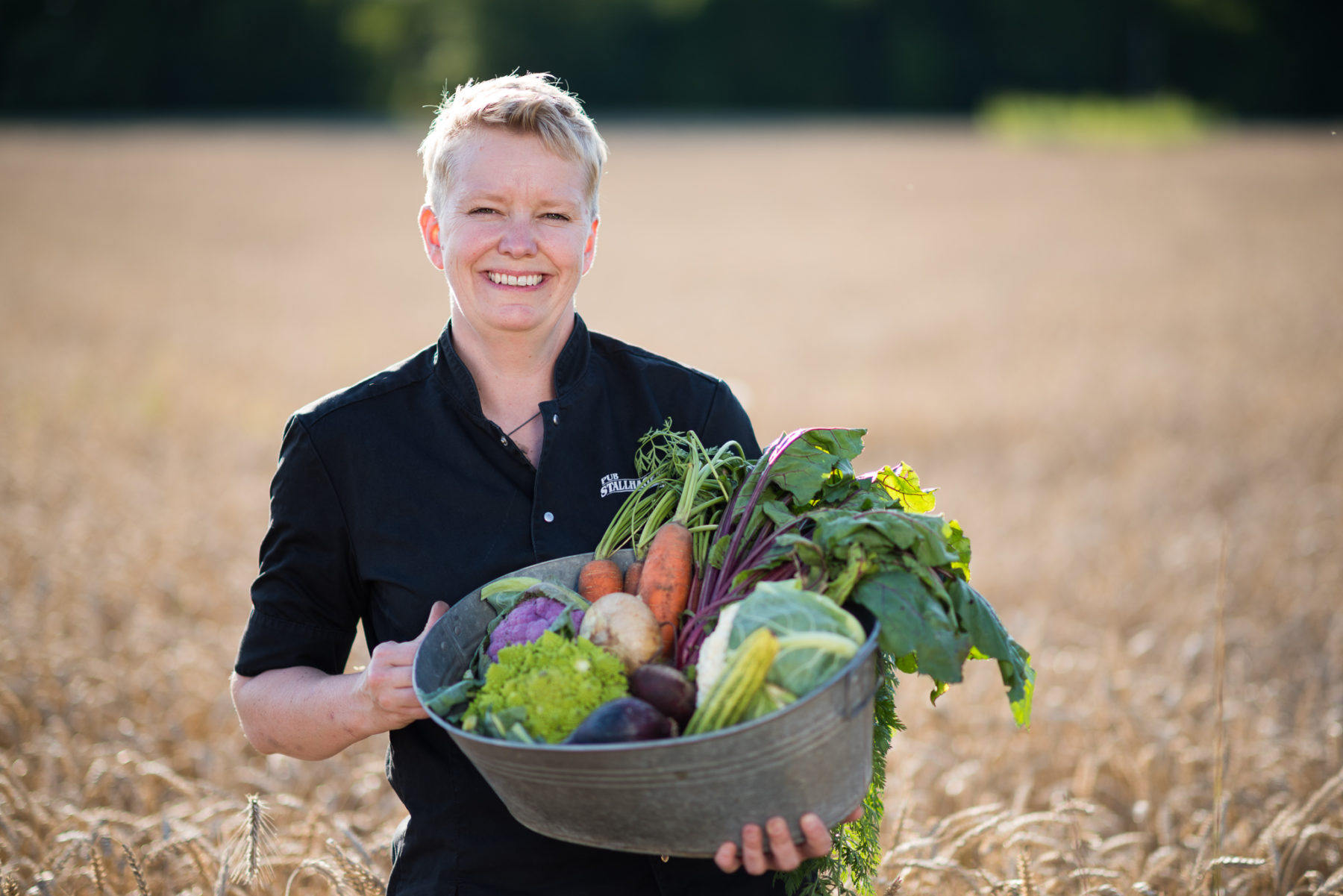
Farming, fishing and hunting – Get to know real local from the food ambassador
The countryside, tradition and culture influence the flavours of Åland
Small-scale operations, farming, fishing and hunting have always featured in the food culture of Åland. Equally, shipping and the Ålanders’ many travels have ensured the development of gastronomy.
“We’ve always been a people that travelled, and this has produced new influences and ideas,” says Johanna Dahlgren, food ambassador and restaurateur at Pub Stallhagen in Finström.
Johanna Dahlgren grew up in a family of chefs, bakers and excellent cooks. As a child living in the country, she learned from an early age to put to good use everything that the Åland countryside had to offer. Fishing, hunting and picking mushrooms were activities that contributed to fill the family’s larder, and Johanna developed a keen interest in what she refers to as good and honest food.
“I want food to be as additive-free as possible and that it should be produced in an honest manner, completely without cheating,” says Johanna.
Cooking food the way our grandmothers did
Johanna has been running Pub Stallhagen for nine years: it is an environmentally certified pub and restaurant located right next to the Ålander Stallhagen brewery. At first, Johanna worked as a chef in the kitchen but in recent years she has left the saucepans behind in favour of working more with administrative tasks and with the customers, such as giving guided tours of the brewery and organising beer tastings in the pub. But her feelings of responsibility and commitment as regards the food that is served have stayed with her. Johanna’s goal is that Pub Stallhagen should be a sustainable business and should cook food the way our grandmothers did. Simply and without frills, good food with plenty of flavours and a high rate of recognition.
“And – of course – the ingredients we use must be from Åland. That goes without saying as far as we are concerned,” says Johanna.
The flavour is determined by the region
Johanna says that Ålanders can sometimes have a bit of a blind spot and underestimate the fantastic ingredients on offer just around the corner.
“We need to stand a little taller and be proud of our products. The place where things are grown determines how food tastes, and apples are grown in Åland taste better than apples that are grown anywhere else. The same applies to animals that have grazed in the Åland countryside – the meat tastes different. Even the water has a flavour of its own here in Åland.”
Water is, of course, extremely important for the Stallhagen brewery.
“Beer consists mostly of water. If the brewery were to move, Stallhagen beer would not taste the same any more. So the place where things are produced is really important in creating their flavour,” says Johanna.
Embrace traditions
Johanna is currently in a group that intends to produce a “merroir and terroir” atlas of Åland. The atlas will describe food production and processing in Åland from the turn of the 19th century to today, what ingredients from Åland taste like, and the connection with traditions, culture, soil, characteristics relating to the sea, and climate.
“Åland as a food destination has been shaped by our traditions and I think it’s important that we make the most of them and are proud of them,” says Johanna.
Training in artisan food production
She adds that small-scale operations and local produce have always been a feature of Åland food, but that shipping has brought in new influences at the same time.
“I remember when my Dad had been to South America on a cargo ship in the 1980s and came home and made ceviche. It was really strange then, but now it’s not unusual at all. Åland food culture can continue to develop like that, with us finding new techniques and methods of preparing our local produce,” says Johanna.
She also mentions the training in artisan food production that was set up in Åland a few years ago.
“It has resulted in a whole lot of new processors who create really exciting products out of Åland ingredients. I believe it to be a direction of travel for farming in the future,” says Johan
-
Links:
-
Share: